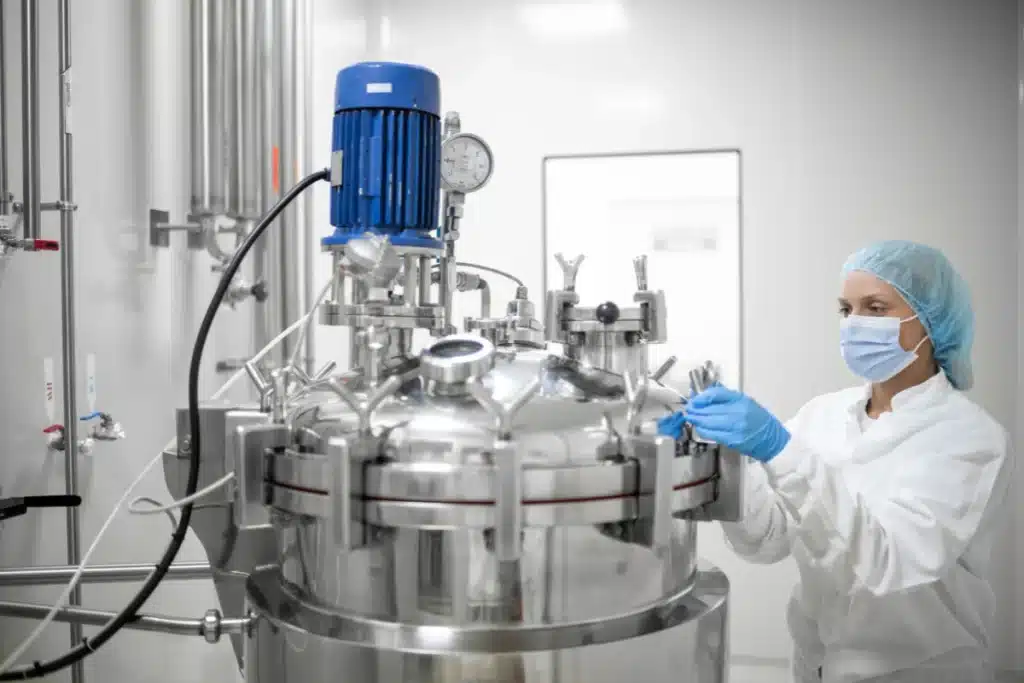Strict quality standards and regulatory compliance requirements characterize the pharmaceutical industry. This leads to challenges in managing drug formulations across various countries. You’ll find that regulatory requirements differ from country to country, affecting pharmaceutical product composition and production process. Pharmaceutical companies must navigate these regulations while ensuring the highest level of safety in their products.
This challenge is heightened by the continually changing pharmaceutical environment where laws and guidelines are updated. Companies must stay on top of these laws to avoid breaking the law or even potential market withdrawals. Recipe variations aren’t just an issue of omitting or substituting ingredients. They also involve altering manufacturing processes, recalibrating dosages, and testing new formulations to ensure they meet every region’s health and safety standards. Incorporating software like GoldFinch helps you manage such challenges. This article highlights the role of Enterprise Resource Planning (ERP) systems in navigating the maze of international pharmaceutical recipe management.
ERP As a Solution
To effectively overcome the challenge of recipe variations among countries, pharmaceutical companies turn to ERP systems. This tool integrates with various business processes for smooth running, including supply chain management and production. Here are some of the several functions it performs.
Centralized Recipe Database for Global Access
An ERP system acts as a unified platform that stores all the recipes for a pharmaceutical product. This database is essential for companies that operate globally. That’s because team members can access and manage different versions of the same products based on local regulations for each country. This centralized approach ensures staff members access to the correct and updated recipe, ensuring consistency and reducing production errors.
Recipe Standardization and Localization
One of the roles of an ERP tool is to balance the need for standardization with the necessity of localization. The system can store a base recipe that defines the main compositions of a drug plus the production process. This base recipe is where all variations are derived. But it goes a step further and allows you to adjust the recipe based on local regulations.
For example, if a particular ingredient is prohibited in a specific country, the system can guide the formulation team to substitute with alternative ingredients that are acceptable in that country. This capability is essential for multinational companies that must distribute their products globally while adhering to diverse regional standards. It will also maintain the integrity of the base recipe while facilitating necessary variations, ensuring consistency in quality and effectiveness across all countries.
Ensures Quality Consistency Across Markets
As much as recipes may vary across different nations due to regulatory differences, maintaining consistent quality and efficacy of the products is essential. ERP systems help standardize manufacturing processes and enforce quality control protocols across locations. This consistency is vital to maintaining the company’s reputation and ensuring consumer safety.
Inventory Management
Inventory management is critical in pharmaceutical manufacturing, and ERP contributes significantly. It tracks the raw materials used in various recipes, ensuring that the right ingredients are available in the correct quantities and adhere to quality standards. Its inventory management capabilities extend to managing supplier relationships and waste reduction.
For example, if a recipe change leads to an increased need for a particular ingredient, the system automatically adjusts procurement orders, ensuring a steady supply without overstocking. In addition, the system monitors shelf life and storage conditions, which is important in maintaining the efficacy and safety of pharmaceutical ingredients.
Regulatory Compliance Tracking
Pharmaceutical regulations constantly change. Trying to remain compliant is almost like trying to shoot at a moving target. Thankfully, a proper ERP tool is equipped with features that track these regulatory changes across various countries. Such features are a gold mine for pharmaceutical companies, allowing them to modify their recipes and manufacturing processes to align with the latest legal requirements.
The system can quickly alert companies of these regulatory changes so that they can make adjustments. This approach reduces the risk of non-compliance, which can lead to costly penalties or damage to a company’s restrictions. In addition, it can store historical data on regulatory changes, allowing companies to analyze trends and predict regulatory shifts. This predictive insight can be invaluable in strategic planning and ensuring long-term compliance.
Promotes Resource Allocation and Optimization
In the pharmaceutical industry, managing resources across different countries presents unique challenges. Depending on local regulations, other recipes may require varied raw materials, manufacturing processes, and labor skills. An ERP system provides a comprehensive view of these resources across all locations, enabling optimal planning and allocation based on the production requirements of each market. This efficiency reduces waste, lowers costs, and improves overall productivity.
Coordinated Multi-Site Manufacturing
An ERP system ensures recipe management is coordinated across all sites in case a company has multiple manufacturing facilities in different countries. This coordination is necessary to ensure that every facility adheres to the specific regulatory requirements of its location while maintaining the company’s global standards. It helps harmonize operations, reduce duplication of efforts, and ensure efficient cross-border supply chain management.
Documentation and Traceability
Compliance, safety, and thorough documentation are important in this industry. Thankfully, an ERP tool offers a comprehensive solution for documenting the production process. For example, it will keep records of the ingredients used, the source of raw materials used, batch numbers, expiration dates, etc.
In terms of traceability, it will track the lifecycle of a product. That is, from procuring raw materials to production, quality control, and distribution. Traceability allows companies to identify and isolate the issue, reducing the risk to consumers and the business itself. These functionalities provide these companies with a solid framework for managing the complex and dynamic formulation and production in a global market.
GoldFinch ERP, Your Solution to Controlling Recipe Variations Per Country
Managing pharmaceutical recipe variations across different countries might be complex but essential for companies in this industry. An ERP tool is vital in addressing this challenge, providing the tools needed for standardization, compliance, efficient inventory management, and documentation. GoldFinch ERP helps support pharmaceutical companies in their quest to deliver effective and safe medications worldwide. Contact us today to learn how this tool can help you control pharmaceutical recipes in various countries.



